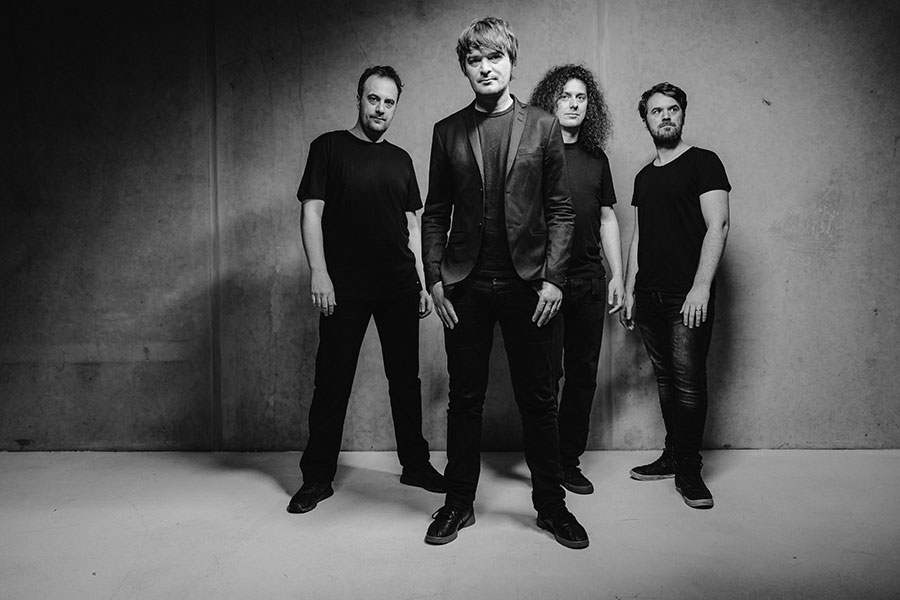If you like your rock to be poppy, with a sing-along melody, then you will want to keep reading this month’s German-language music recommendation! Or how about some edgier punk rock, too? Can a band do both? I know one that can: the quartet Madsen. Made up of three brothers, the established northern German band has been around for more than a decade.
The group has been winning fans with their upbeat rock sound that has spanned more than a half-dozen albums with which you can hone your German language skills. Ready to rock? Let’s get going!
Get to Know The Band
Madsen takes its name from the three brothers in the band: Johannes Madsen (guitar and vocals), Sebastian (vocals and guitar), and Sascha (drummer). The three are joined by bass player Niko Maurer. The group hails from Priesseck, southeast of Hamburg in northern Germany.
While still young, the brothers played a variety of musical styles in different bands. From hip hop to hard rock, they seem to have tried it all. Eventually, they focused on being a rock band using their surname as the band’s moniker. By 2004, they got the attention of Universal Music after sending a demo tape. The label signed the group.
And the rest, as they say, is history.
Madsen’s Music
In the spring of 2005, Madsen released their self-titled debut album. The album is full of upbeat and melodic rock tracks that have a certain familiarity while still being original. Goodbye Logik followed in 2006 and Frieden im Krieg in 2008. The albums share the same pop-like qualities with sing-along choruses, bouncy melodies, as well subtle hints of a rawer, grungier sound.
It is plain to hear that Madsen’s confidence grew with each album they released. But 2010’s Labyrinth, the quartet decided to mix things up a bit. The album’s opening title track evokes Queen with a more dramatic sound that is more elaborate and produced. With strong tracks like “Mein Herz bleibt hier,” it is possibly their most commercial album, too.
From the first seconds on 2015’s Kompass, it is clear that this is a different Madsen. Opening track “Sirenen” is a full-frontal hard rock attack, complete with a thick guitar riff. And it is not just a one-track wonder. The band’s sound remains fuller throughout, their once indie pop-rock sound a distant memory. But that is not to say they have abandoned their melodic foundations. “Küss mich” shows that even when they slow things down a bit, the melody still drives the action.
2018’s Lichtjahre continues the harder pop-rock sound and increases the complexity. Overdriven guitars drive “Rückenwind” before “Mein erstes Lied” plays to childhood nostalgia with a delicate wispy sound.
All bets are off though with 2020’s Na gut dann nicht. Seemingly long gone are the melodic indie rockers of more than a decade earlier. Performed live you can imagine mosh pits and being covered in spit. Punk rhythms speed by and the vocals are now less sung than spoken. The lyrics are a bit edgier, too. You can still clearly hear the Madsen of earlier but it is a different direction that may not appeal to all fans.
Even as the band has matured over the years and leaned more into a somewhat hard sound (relatively speaking), one thing remains the same: frontman Sebastian’s smooth, clear vocals. This trademark vocal sound just happens to be ideal for German language learners.
Looking for another Ohrwurm to help you learn German? Check out previously featured musicians and bands!
Photo by Dennis Dirksen, courtesy of FKP Scorpio. This post contains affiliate links.
